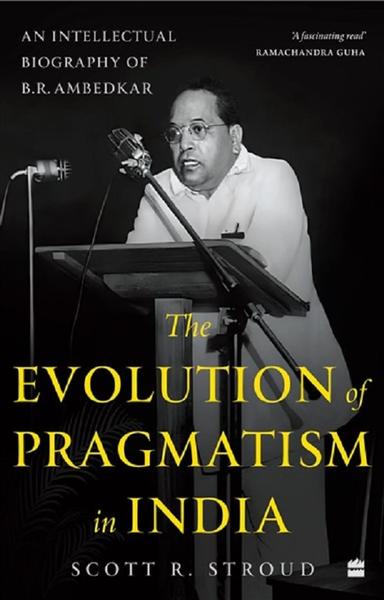
Evolution of Pragmatism in India
Scott R. Stroud
In The Evolution of Pragmatism in India, Scott R. Stroud delivers a comprehensive exploration of the influence of John Dewey’s pragmatism on Bhimrao Ambedkar, architect of the Republic of India’s constitution. Stroud traces Ambedkar’s development in Dewey’s Columbia University classes in 1913–1916 through his final years in 1950s India when he rewrote the story of Buddhism. Stroud examines pragmatism’s influence not only on the philosophical ideas underpinning Ambedkar’s fight against caste oppression but also how his persuasive techniques drew on pragmatism’s commitment to reconstruction and meliorism. At the same time, Stroud is careful to point out the ways that Ambedkar pushed back against Dewey’s paradigm and developed his own approach to challenges in India. The result is a nuanced study of one of the most important figures in Indian history.
Scott R. Stroud
0 Followers
2 Books
Read Book
- Cookery
- Biographical Memories
- Children's Literature
- Comedy-satire
- Comics-Memes
- Education
- Feminism
- History
- Horror-paranormal
- Law & Order
- Love-Romance
- Self Help
- Sports-Sportspersons
- Suspense-Thriller
- Science-Technology
- Travelogue
- Other
- Diary
- Criticism
- Science-Fiction
- Social
- Erotic
- Familial
- Religion-Spiritual
- Craft-Hobby
- Crime-Detective
- Film Reviews
- Contemporary Stories
- Action
- Astrology
- Animals
- Literature & Fiction
- Trade-Money
- Translation
- Motivational
- Health-Fitness
- Latest Books
- Top Trending Books
- Listed Books
- Printed Edition Books
- Audio Books
- Reviewed Books
- Novel
- Story/ Story collection
- Poem/Poetry collection
- Magazine
- General Books
- Book Competition
- All Books...
Read Articles
- Ram Navmi
- Eid-Al-Fitr
- Hindu New Year
- PMLA ACT
- Voter Verifiable Paper Audit Trail
- Mukhtar Ansari
- Martyrs' Day
- Citizenship Amendment Act
- Oscar Awards
- International Women's Day
- Sandeshkhali incident
- Farmer's Movement
- Basant Panchami
- Controversy over caste based reservation
- Budget 2024
- Martyr's Day
- Republic Day 2024
- Shree Ram Mandir -Ayodhya
- Makar Sankranti
- World Hindi Day
- GLOBAL WARMING
- Daily_Competetion
- Childhood friends
- First book I ever read
- Sparking Innovation
- Feminism
- Rainy day
- National education day
- Momentary Love
- Global climate change
- Magical world
- Motivational
- constitutional
- Discovery
- BASANT PANCHAMI
- Society
- Travel
- Women's history month : march
- Superstition or Faith (Bageshwar Dham)
- Vishwakarma yojna
- Experiences
- modern
- litterateur
- social
- Drama
- REPUBLIC DAY
- Climate change
- motivational
- G20Summit
- great men
- All Articles...











